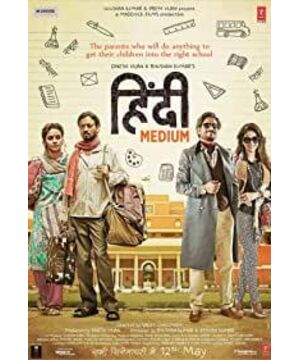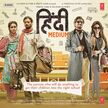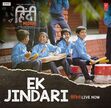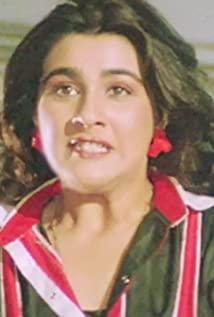As children and their parents who have just changed schools, my daughter and I watched with great interest. The viewing experience will always be connected to personal experience. I think people who are confused about the education system they are in may also be touched. Because it is a commercial film, the screenwriter has done a lot of vulgar and simplistic treatment, such as "Pia's drug use", probably only a junior audience like a girl will buy it. But in general, the techniques and themes are matched, and in the transition of the family, a theme that I quite agree with has been sublimated. The topic is put at the end, and I will talk about my feelings about some details of the film.
First of all, the translation of the film "Starting Line" can be said to be a failure. One is that the protagonist is not the little girl standing on the starting line at all, and the title of the film will be misleading; the other is that the title of the film is too formal and will not attract the audience to watch the movie. Relatively speaking, although the original title "Indy Middle Class" is still ordinary, it at least shows that the protagonist couple is the focus of the movie.
The little actor who plays daughter Pia is very, very cute. It's a pity that Pia is basically a prop in this movie. Although there are many appearances, the lines are pitiful. From the perspective of a few scenes, this is a child with a strong heart. Whether it is moving from her hometown to a new apartment or moving from a new apartment to a slum, she can take it lightly. (At the first party in the new apartment, she dragged her dad to dance without fear; on the first night in the ghetto, she danced her feet on the bed to beg Jerry.) Congenital factors aside, this power can only come from Parents are abundant but not overly caring. (The image of the overprotective mother Mita in the film is actually contrary to the image of Pia. If you have to explain it, it can only be said that the father Raj gave a more important demonstration.)
In the middle-class world of Indy, as framed by the movie, children are just the products their parents hope to craft. Pia's prop attributes are also intentional. Most notably, Pia appears in the upper left corner of the shot for every school interview, only as a background for her parents. The teacher at the college counseling agency also said that Pia is fine, the school just doesn't want the owner's child. In other words, it doesn't matter whether the child has a problem or not, because the school interviews only the parents. From this perspective, in the speech at the end of the film, Raj is not facing a group of innocent parents who let their children go to school through the normal process, but a group of people who use the power and resources they already have to absorb more power and resources. Vested interests. The whole process, including letters of recommendation and admission counseling, is essentially a competition for parents. Raj failed in the competition, so he turned to encroach on the special skill index of the poor. Other parents don't look as shameless as Raj, but that's because they have consolidated their privileges with legal system settings. They don't need to reach out to grab it, just turn their backs and deprive the poor of educational resources.
A lot of people seem to think that the ending of the film is not strong enough or too hypocritical, but I think it's a very good ending, the last part, where Raj and Mita get Pia into the car and then hug and walk away . This makes the depth of the film, from reflection on the unfair distribution of educational resources, a step further. Every country has its own educational problems. The difference between private schools and public schools in China is far from the same as that of private schools and public schools in India. But all families face the same educational problem, that is, whether parents and children, and parents and parents, can reach a consensus on educational philosophy and educational methods. Raj, Mitta, and Pia gave up their degrees from top universities, and many viewers must feel distressed for them offscreen. But how many people realize that the pressure of chasing fame and fortune is a poison? What kind of value can family harmony bring?
View more about Hindi Medium reviews











